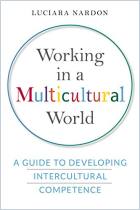
The Mindful International Manager
How to work effectively across cultures
Recommendation
Globalization and technology are making a small world even smaller. Yet cultural differences still exist. International managers have to recognize those distinctions and harness them to get the most out of their global employees. Consultant Jeremy Comfort and professor Peter Franklin provide basic pointers on how to become “mindful” of aspects of culture that, if ignored, could derail your business. The authors practice what they preach: Their plainly written guide is free of jargon and accessible to non-native English speakers, and it provides an essential overview of a complex, multifaceted subject. Seasoned international executives may find the book’s contents to be old news. Nonetheless, getAbstract recommends its concise and informative tips to frequent business travelers, expatriate employees, managers leading culturally diverse teams and anyone looking to get a better grip on doing business globally.
Summary
About the Authors
Jeremy Comfort founded York Associates, UK. Peter Franklin is a professor of international management at Konstanz University of Applied Sciences, Germany.



















Comment on this summary or Начать обсуждение